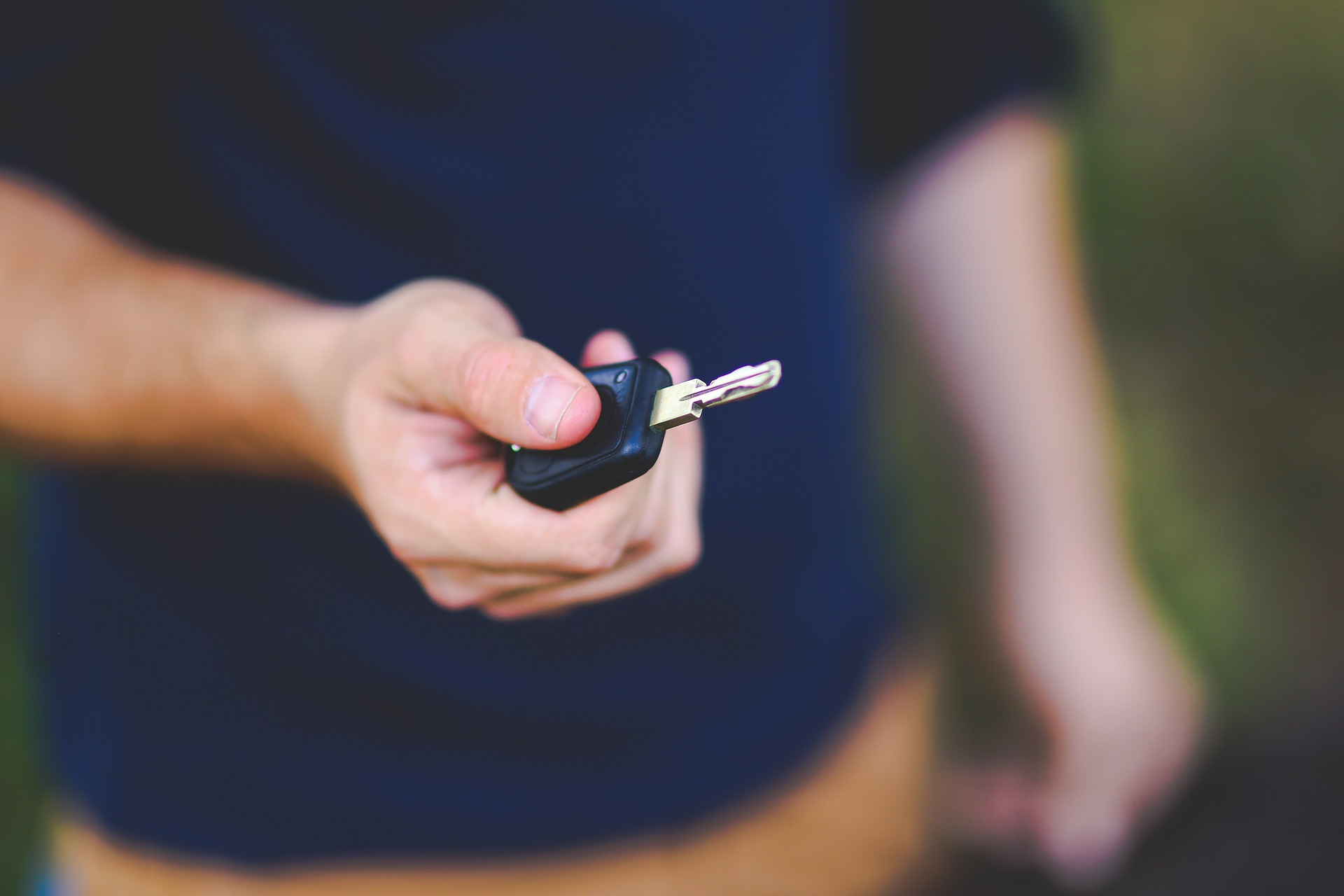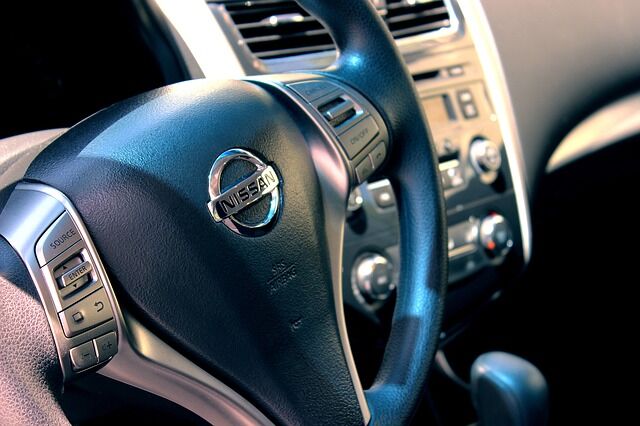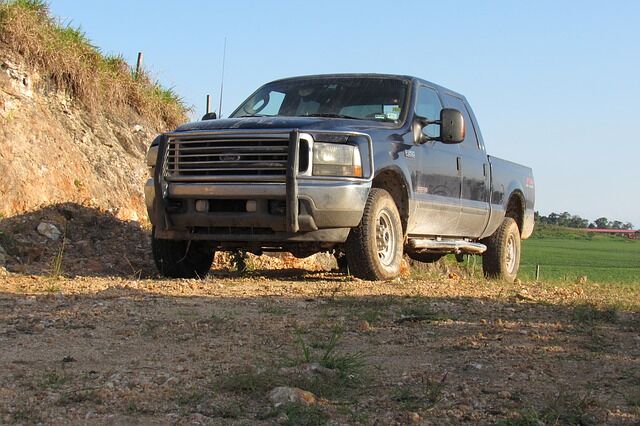Why Can Car Donations Appear to Be a Scam?
Whether or not you’ve known someone who’s done a car donation, you may be skeptical of the process. That’s totally understandable. To some, it can feel like you’re giving up the value of a trade-in or the cash you’d get from selling a car yourself. What many people have come to realize, is when you donate a car to charity, you’re putting a checkmark in the plus category on your taxes.
 In truth, you and your accountant can determine your need for certain tax write-offs, credits, or deductions. But a car donation through Cars2Charities will maximize your car’s value rather than diminish it, as a dealer typically keeps 60-70% of its value. By donating your car, you’re not just getting a write off, but you’re supporting the cause of your favorite charity.
In truth, you and your accountant can determine your need for certain tax write-offs, credits, or deductions. But a car donation through Cars2Charities will maximize your car’s value rather than diminish it, as a dealer typically keeps 60-70% of its value. By donating your car, you’re not just getting a write off, but you’re supporting the cause of your favorite charity.
Now, what are the most common reasons people view car donation as a scam? We have taken the time to answer this question and offer you a different perspective.
Someone may think a car donation company is a scam if…
• The car donation company is not a charity
• They can’t take your car for donation
• The charity doesn’t get 100% of proceeds
• Your car doesn’t sell for Kelley Blue Book value
• Your charity is not on our list (or maybe it was on the list, but isn’t anymore)
• It takes a while to sell your donated vehicle (RVs, motorcycles, and watercraft included)
How can all of these factors not be indicators of a scam? In order to answer this, we must dig a little deeper. So let’s dive into car donations with Cars2Charities.
Why Donate My Car to a Company That Is Not a Charity?
 Excellent question! Cars2Charities is not a nonprofit but IS registered as a commercial fundraiser (aka professional fundraiser), which means when you donate a car to charity through Cars2Charities it provides a way to raise money for the 501(c)(3) of your choice. Cars2Charities actually acts as a representative of your charity during the donation process! All you do is select a nonprofit organization that you care about, and Cars2Charities does the heavy lifting.
Excellent question! Cars2Charities is not a nonprofit but IS registered as a commercial fundraiser (aka professional fundraiser), which means when you donate a car to charity through Cars2Charities it provides a way to raise money for the 501(c)(3) of your choice. Cars2Charities actually acts as a representative of your charity during the donation process! All you do is select a nonprofit organization that you care about, and Cars2Charities does the heavy lifting.
So, although Cars2Charities is not a charity, you still receive a tax deduction for your vehicle.
How, you ask? Well, in reality you ARE donating to the charity you chose, Cars2Charities is just taking care of the details.
Why doesn’t the charity handle the car donation themselves? Simple. They don’t know how, and they most likely don’t have the money, staff, or right connections. Car donations are complicated. There are many components involved, including IRS paperwork, DMV transfers, finding reputable companies pick up, buy, and sell donated vehicles, and knowing the rules and regulations. Most charities don’t have the right tools to handle their own car donation programs, and even if they did, car donations would take their focus away from their missions and take up too much of their resources. That’s why companies like Cars2Charities specialize solely in car donations. It saves charities stress, time, and money.
An additional advantage of Cars2Charities not being a charity is that we are not tied down to one, single cause. Our fundraising status means we’re free to work with a variety of charities, giving you many causes and nonprofits to choose from.
Why Is My Vehicle Being Turned Down For Donation?
Perhaps you’ve called around and no one seems to want your car for donation. “But I am giving it away to you for free,” you’ve said so many times to so many people. Still – no one will take it.
Here is the deal. Vehicle donations are not free. In order to raise funds for the charities we represent, we must be able to sell all vehicles that come through our facilities. Cars that are rusted, infested, run down, or just undesirable, won’t make enough money at auction to cover the fees it costs to send them there. In order to stay in business, we sometimes have to be selective.
 Trust us, we would take everything if we could, but the used car industry isn’t what it used to be, and neither is the scrap metal market. At one time, we could take everything, and cars that didn’t sell at auction would be sold to scrap yards. But when scrap yards stopped buying, we had to change our business model. If we can’t take your car, we sincerely apologize and can definitely provide you with some alternative options. If donation is not feasible, just ask your friendly donation coordinator what your options are. She can help you decide what is the best choice for you and your old car.
Trust us, we would take everything if we could, but the used car industry isn’t what it used to be, and neither is the scrap metal market. At one time, we could take everything, and cars that didn’t sell at auction would be sold to scrap yards. But when scrap yards stopped buying, we had to change our business model. If we can’t take your car, we sincerely apologize and can definitely provide you with some alternative options. If donation is not feasible, just ask your friendly donation coordinator what your options are. She can help you decide what is the best choice for you and your old car.
Something else worth mentioning is that in the event a car’s sale price fails to cover expenses, such as towing or auction fees, Cars2Charities will pay for those out-of-pocket. We actually make sure our charities receive a minimum donation from us even if we lose money on donations that sell for less than we anticipated. However, to keep our doors open and continue the work we do for our hundreds of charity partners, we really try to make sure donations at least cover the cost of expenses – even if that means we are not getting paid.
As a rule of business – to stay afloat – companies need to cover expenses and make sure there is enough left over to pay their hard-working staff and pay for rent and utilities. It is a common misconception that car donations are free for everyone; that is not the case. This is a multi-million-dollar industry that involves many people who need to be compensated for their work, including companies like Cars2Charities.
Why Doesn’t My Charity Get 100% of the Proceeds?
Let’s pretend you’re 10 years old and you’ve decided to sell your bicycle. In order to sell the bicycle, you realize you need a hand or two. First, you need to fix the bike, so you ask your father for help. Then you need to paint and clean it, so you ask your brother for help. Finally, it’s time to sell the bike to your friend across town, but you need a ride to get it to him, so you ask your mother for help. Now that you’ve sold the bicycle and you have the money from the sale, you realize that you didn’t do all the work yourself. In return for the help they gave you, you give some of the money you made from the bike to each member of your family, and you keep the rest for yourself.
The same concept applies to vehicle donations. Cars2Charities takes your information, picks up your vehicle, transfers the paperwork through the DMV, sells the vehicle at auction, sends you a tax receipt for the donation, and mails the proceeds, minus expenses, to the charity you chose. They even offer each charity free marketing!
But you want to know where all these expenses are coming from. They are simply payment to the people who provided services that turned your vehicle into a tax deduction (and proceeds for the charity). Each hard-working individual, from the phone operator to the tow truck driver, must be compensated for their work. A lot of time and effort goes into each donation. We do try to keep expenses to a minimum, and the proceeds that remain after expenses are paid go directly to the charity.
The good news is, expenses do not affect you as a donor. You get to write off the ENTIRE sale price of the vehicle!
Will my Car Donation get the Kelley Blue Book Value?
 Sometimes! But most likely, you will get the fair market value of your vehicle, which is typically less than the Kelley Blue Book value. This is not a Cars2Charities policy, but is a regulation created by the IRS. To understand the government’s definition of Fair Market Value, use IRS Pub 561 for an explanation when you donate a car to charity.
Sometimes! But most likely, you will get the fair market value of your vehicle, which is typically less than the Kelley Blue Book value. This is not a Cars2Charities policy, but is a regulation created by the IRS. To understand the government’s definition of Fair Market Value, use IRS Pub 561 for an explanation when you donate a car to charity.
As stated above, after a vehicle is picked up, it is sold at auction, but we also have affiliations with private buyers and dealers who are looking for certain years, makes, and models. These individuals will pay higher than fair market value and closer to Kelley Blue Book in many cases.
If you’ve never taken part in a car auction, you may not know that some factors pertaining to the process itself affect the final selling price of your donation vehicle. Each vehicle in a car auction is sold to the highest bidder. Of course, that means you can’t be entirely aware, in advance, of the final price your donation vehicle sells for. Additionally, the IRS prohibits us (car donation companies) from disclosing a predicted price prior to the selling of vehicles. Nevertheless, these regulations do not prevent car donations from being a valuable opportunity. Many times, donors contact us elated because their cars sold for way more than they expected!
What If My Charity Is Not on Your List?
There are two reasons a charity may not be listed on our website:
1. We may not have an agreement with them yet. To make sure we are abiding by state regulations, we must have a formal agreement with every nonprofit we work with. If you want to donate to a charity that is not listed, no problem! We just need their contact information and we can reach out to them to see if they are interested in receiving donations from our company. Most charities are thrilled to find out that there is yet another way to receive donations, but there are some charities that are not comfortable with car donations. In any case, we are happy to call your favorite charity and explain how our services can benefit them.
2. They may have been removed from our list. If a charity has been removed from our list, it is most likely because they did not complete mandatory paperwork for the Attorney General. We file all of our donations with the Attorney General, then send the reports to be verified by each of the charities. If a charity does not complete this report, we are forced to remove them from our list and terminate the agreement we have with them. There are also a few cases where a charity has asked to be removed from the list because they no longer want to accept donations. This is fairly rare, but it can happen.
Charities are just like you. They want to know that car donations are going to benefit them. We speak with and add new charities to our list every day and are always glad to answer their questions about our program. We know car donations are misunderstood and find that once a charity has a better idea of how donations work, they are excited to get started with our services.
Why Is It Taking a While to Sell My Donated Vehicle?
The car donation procedure is extremely easy for donors and charities alike. At times, it can be a little tricky for us, especially when it comes to selling unique donations. Certain vehicles are highly sought after, but others take a little longer to sell if there is a narrower population of buyers looking for that type of vehicle.
Classic cars, motorcycles, RVs, off-roading vehicles, and watercraft are among some of the more difficult vehicles to sell. Even nicer, more high-end vehicles can take longer to sell. Most of these specialty vehicles cannot be sold at general auctions, which means it’s up to us to find specific buyers. These types of buyers may or may not be in our network. Although we have a wide variety of specialized buyers, sometimes they are not in the market for the vehicles we have at a certain time of year. In the event that we cannot find a buyer right away, it may take a few months to sell your donated vehicle. This is completely normal for unique vehicles.
Rest assured that all of our vehicles sell. It is just that sometimes it takes longer to find the right buyer. If you haven’t received your tax deduction by the end of 10 weeks, please call us to find out the status. We keep detailed notes in each donation account and we are all about transparency. If your vehicle is having a hard time selling, we will be upfront with you about it. Sometimes the reason the vehicle won’t sell is not because it’s undesirable, but because it is worth more than buyers are willing to pay. Crazy, right? But it does happen.
There is a foot for every shoe, and the same goes for vehicle donations. We can, and do, sell everything! It just may take a little longer than expected. Not to worry, you WILL receive your tax deduction. We guarantee it!
Are Car Donations a Scam?
 No, but they are often times misunderstood, just like any other business or industry.
No, but they are often times misunderstood, just like any other business or industry.
If you’re not in the business, you may not understand it completely. And trust us, we get that.
In much the same way that we rely on airlines for our travel, we don’t feel the need to become pilots ourselves. We are all capable of entrusting others to complete complex services for us that we don’t wholly understand. The main takeaway is to do enough due diligence to feel confident that the car donation company you choose is worthy of working with you!
Cars2Charities does our best to give you as much information as we can to help you understand the process, but it is a large industry and there are things that may be enigmatic. This just means that you need to make sure to do your research and find a company that follows the IRS rules and does their utmost to inform you as a donor of their services and policies. We pride ourselves on our honesty and transparency about how our program works. This is because we want nothing more than for car donations to be safe and beneficial for donors and charities.
As none of us has the time to learn every detail about completing transactions in every arena of life, we can luckily still engage. Likewise, you can trust our nearly half a century of combined experience – we take care of the aspects that aren’t in your wheelhouse. All you need to do is make the first step toward your car donation by reaching out to us. And please ask questions, we are here to provide you with answers.

